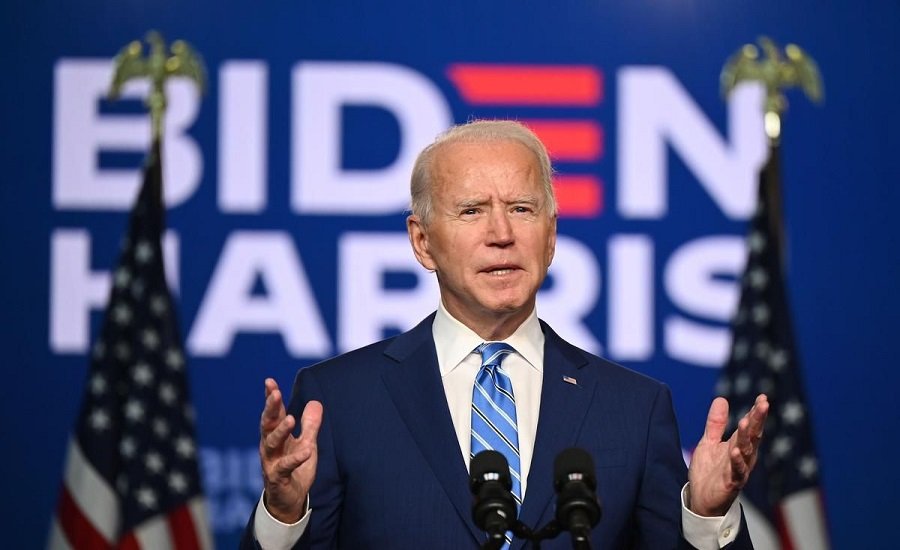
When Kamala Harris was announced as Biden’s running mate in August, the news was met with mixed reactions in India. While many cheered at the prospect that someone from the Indian descent might ascend to the second highest office in the US, there were also significant notes of caution, particularly from pro-BJP voices
Fawaz Shaheen | Clarion India
WITH Joe Biden set to take over as the US President from Donald Trump in just over two months, the Biden-Harris duo’s attitude towards India will come under increasing scrutiny in New Delhi.
Biden’s campaign pledge to restore the H-1B work visa, favoured by many Indian techies, has caused considerable excitement. His immigration policy outline also promises to increase employment visas for high-skilled workers and do away with the country-based quotas. What has received less scrutiny so far is the campaign’s promises when it comes to human rights issues, and how it relates to India.
President-elect Biden’s campaign website includes two policy papers that advocate positions with regard to the human rights situation in India. In ‘Joe Biden’s Agenda for Muslim-American Communities’, the former Vice President calls on the Indian government to ‘restore rights for all the people of Kashmir’.
It also expresses ‘disappointment’ with the implementation of the National Register of Citizens (NRC) in Assam and the passage of the Citizenship Amendment Act (CAA), calling these measures ‘inconsistent with the country’s long tradition of secularism’ and detrimental to sustaining a ‘multi-ethnic’ and ‘multi-religious’ democracy.
More broadly, the campaign’s only foreign policy document outlines their focus on strengthening democracies in an age of growing populism and ‘authoritarian backslide’ in many democratic countries. As a concrete measure, it pledges to organise a global Summit for Democracy that will bring together leaders of the world’s democracies to ‘honestly confront the challenge of nations that are backsliding’.
The Summit’s priorities are detailed as (1) fighting corruption; (2) defending against authoritarianism, including election security; (3) advancing human rights in their own nations and abroad.
While it still remains to be seen if such a summit does ever take place, the language and tone implies that a Biden White House might be keen on talking about human rights issues in other countries.
It will be interesting to see what approach the incoming administration will take to India’s recent record on a range of human rights issues. Some people have pointed to Biden and Harris’s previous record as an indicator of how they might position themselves once in office.
When Harris was announced as Biden’s running mate in August, the news was met with mixed reactions in India. While many cheered at the prospect that someone from Indian descent might ascend to the second highest office in the US, and all that it would mean for Indian-Americans, there were also significant notes of caution, particularly from pro-BJP voices.
In particular, her purported views on Kashmir were flagged as a matter of concern for New Delhi. While she hasn’t directly expressed any condemnation of the Indian policy, in reply to a question on the human rights abuses in Kashmir, she said that ‘… they are not alone, that we are watching…’. She hasn’t expressed any clear stance on the issue of CAA and NRC either, but she has extended support for American lawmakers who condemned these moves by the Indian government.
These factors as well as her record for emphasising human rights issues in foreign policy debates led many groups like Hindus for America and Overseas Friends of BJP to raise concerns about her impact on US-India relations. Some right-wing commentators went so far as to characterise her as ‘Hindu-phobic’ and ‘pro-Pakistan’.
However, it does not seem likely that any of this will lead to a significant change in US-India relations. For one, American companies will continue to need the Indian market. Further, most analysts predict that Washington’s main strategic priority for the foreseeable future is going to remain China, and the bulk of its efforts will be directed to containing Chinese influence. Given that India is seen as a vital partner in balancing China power in the region, any American administration will consider the relationship with India indispensable. At most, there might be some public concerns raised about human rights issues, but the core of American policy towards India should remain the same.
 Fawaz Shaheen is a law graduate from AMU and has completed his LLM from the Indian Law Institute. He is currently a Researcher at Quill Foundation, a Delhi-based Research and Advocacy group focusing on Human Rights and Constitutional Law and Policy. The views expressed here are author’s personal.
Fawaz Shaheen is a law graduate from AMU and has completed his LLM from the Indian Law Institute. He is currently a Researcher at Quill Foundation, a Delhi-based Research and Advocacy group focusing on Human Rights and Constitutional Law and Policy. The views expressed here are author’s personal.

